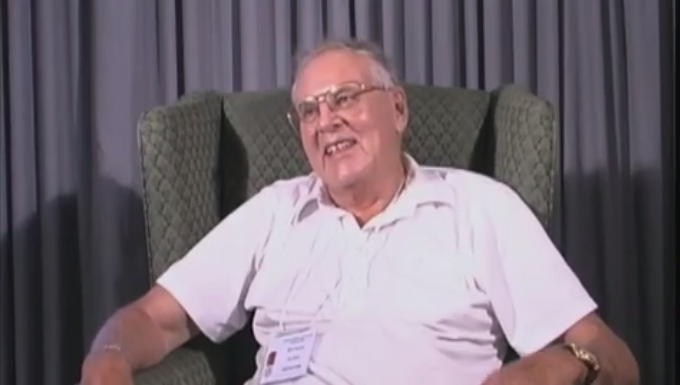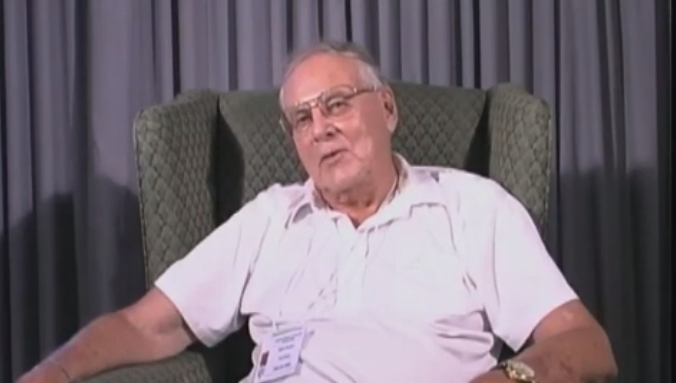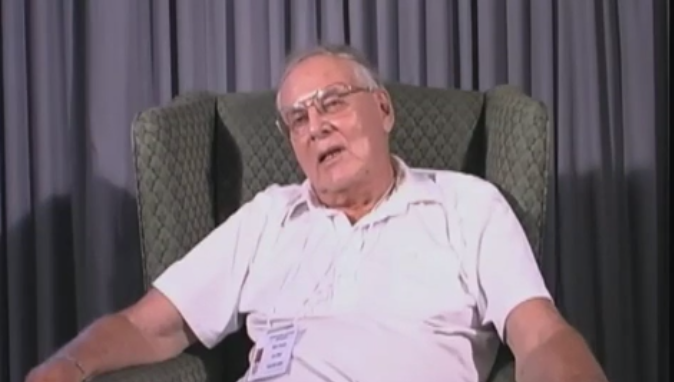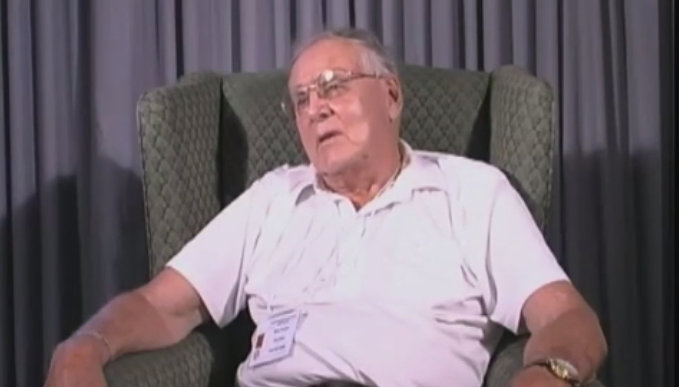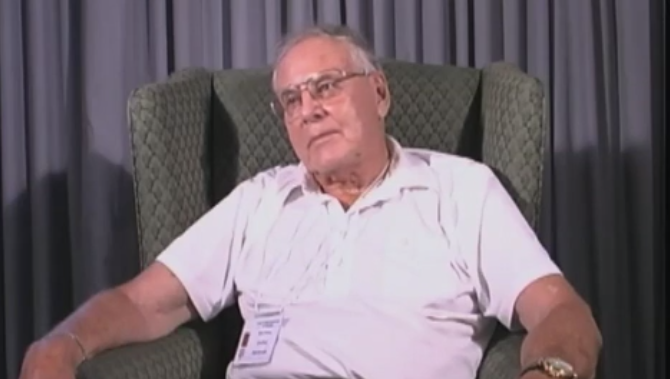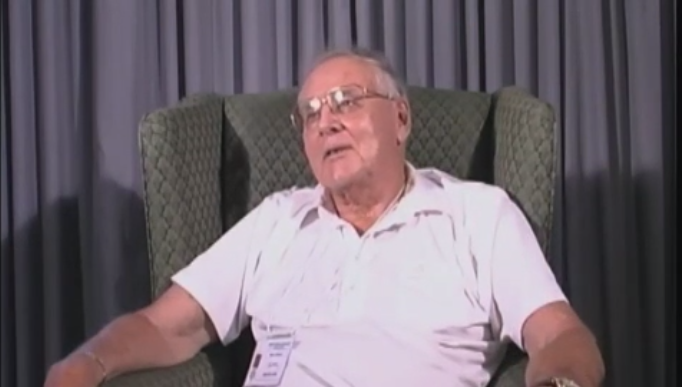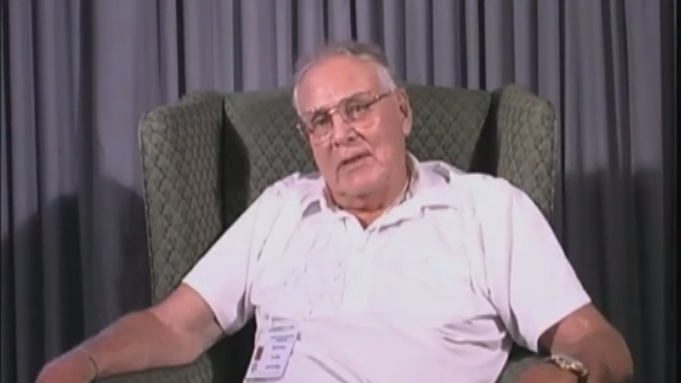Anti-aircraft Fire
Heroes Remember
Anti-aircraft Fire
Transcript
Most of the tours were bombing railroad tracks and railroad
stations, and trying to knock out the supplies of ammunition or
fuel dumps, and so forth. But I think everything has some humour
in it, even when there’s disaster associated with it,
and this was on 159. We were detailed to lead in and destroy
a large supply of fuel, right in the middle of Bangkok, but not
damage the pagodas at all. And this was on a little island right
in the middle of the river. So we came in, but the anti-aircraft
fire that we’re usually used to was these so-called 20 minute,
20 second predictors. The Japanese would start a fire, and they’d
pick up the sound of the aircraft, and they’d fire eight rounds.
So, you got so used to it, you’d just count “a thousand and one,
a thousand two, a thousand three” round until about “a thousand
and fifteen,” then change course, up down or down and over.
And then, of course, they’d just fire. Once they hooked onto you,
they’d fire. If you counted a little slowly, the tail gunner got
a little upset, particularly when that eighth one came a little
close. But that was okay. We never got hit, but this time they
did what’s called a pattern. It’s set just like a checkerboard,
you know. They had to fly through it, and we lost our outboard
engine completely on the starboard side. Just came right out of
the wing, a big hole. And inboard engine, on the port side,
lost three cylinders off of that, so ... Well, we wanted to get
away, as far away as we could, of course, from Bangkok at that
time. We didn’t think we’d be too popular and, uh … but the
aircraft was quite heavy. It wouldn’t, couldn’t lift. So we
destroyed all of our navigational equipment, which we had.
It was a brand new aircraft and it had this H2 air switch,
which was, which was a radar type of thing, very heavy.
We got rid of that and we got rid of everything that we could on
the aircraft that was, like, including the ground racks.
And the aircraft started coming up.
Description
Mr. Power talks about a dangerous bombing mission in Bangkok.
Robert Power
Robert Power was born in 1920, in Yarmouth, Nova Scotia. He grew up in a small fishing village with a one-room schoolhouse. Before enlisting in 1942, Mr. Power studied biochemistry. He served as a pilot in the RAF and spent 26 years in the military. After the war, Mr. Power returned to medicine and became a doctor.
Meta Data
- Medium:
- Video
- Owner:
- Veterans Affairs Canada
- Duration:
- 2:47
- Person Interviewed:
- Robert Power
- War, Conflict or Mission:
- Second World War
- Location/Theatre:
- Burma
- Battle/Campaign:
- Burma
- Branch:
- Air Force
- Units/Ship:
- 159 Squadron
- Rank:
- Lieutenant-Colonel
- Occupation:
- Pilot
Related Videos
- Date modified:




